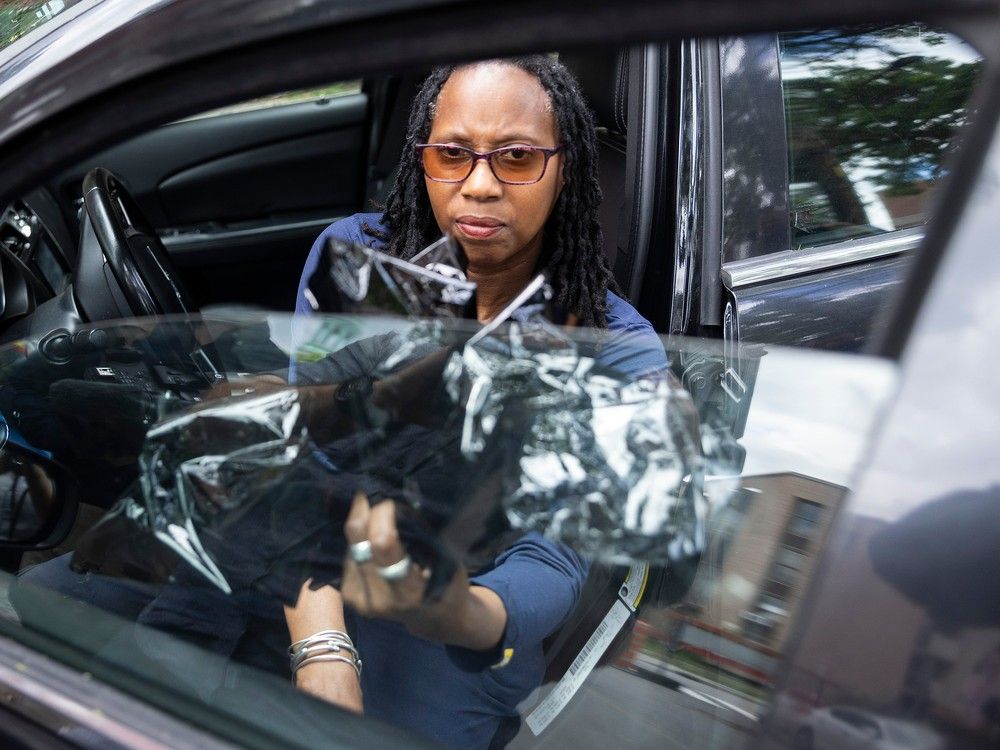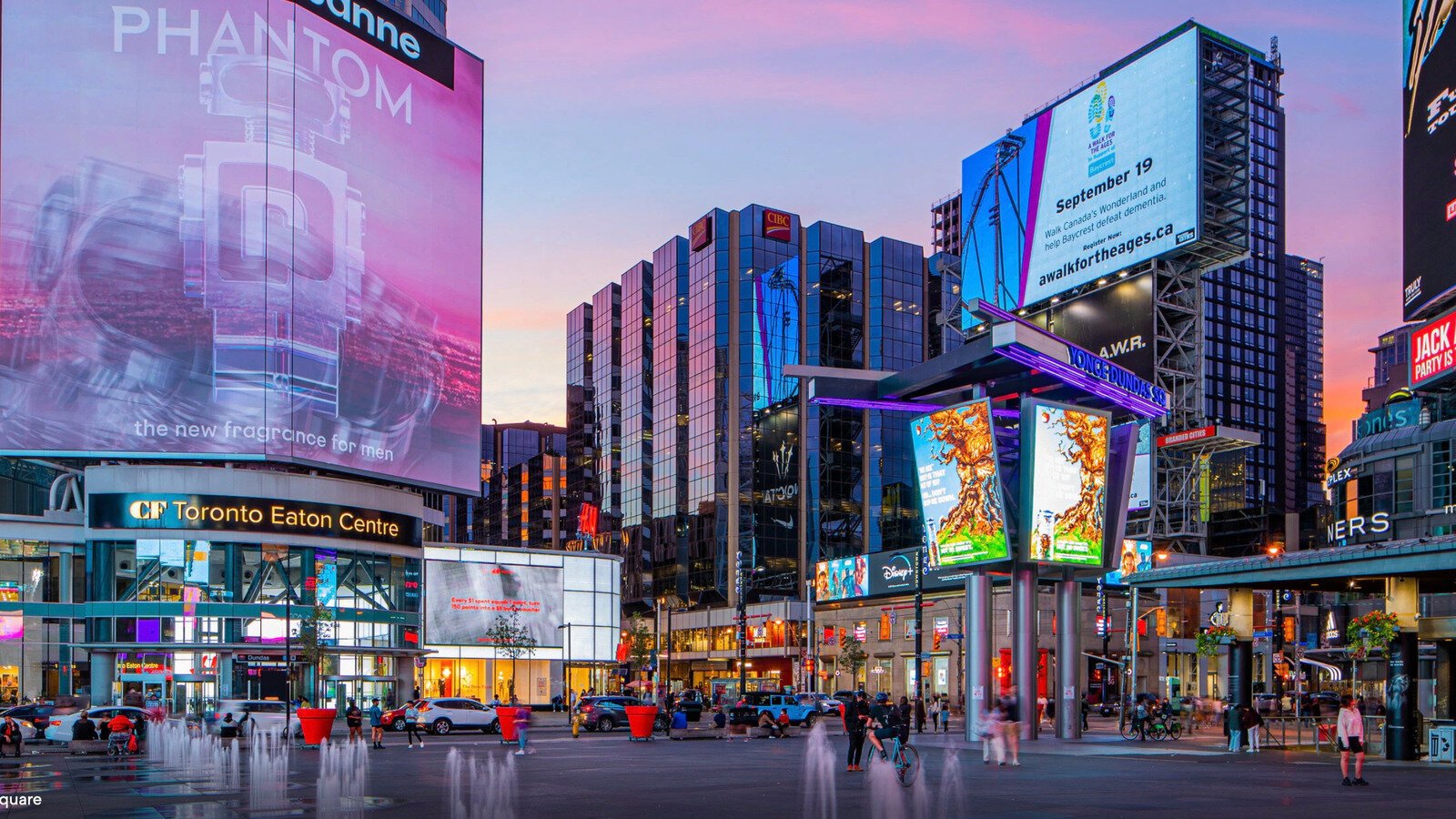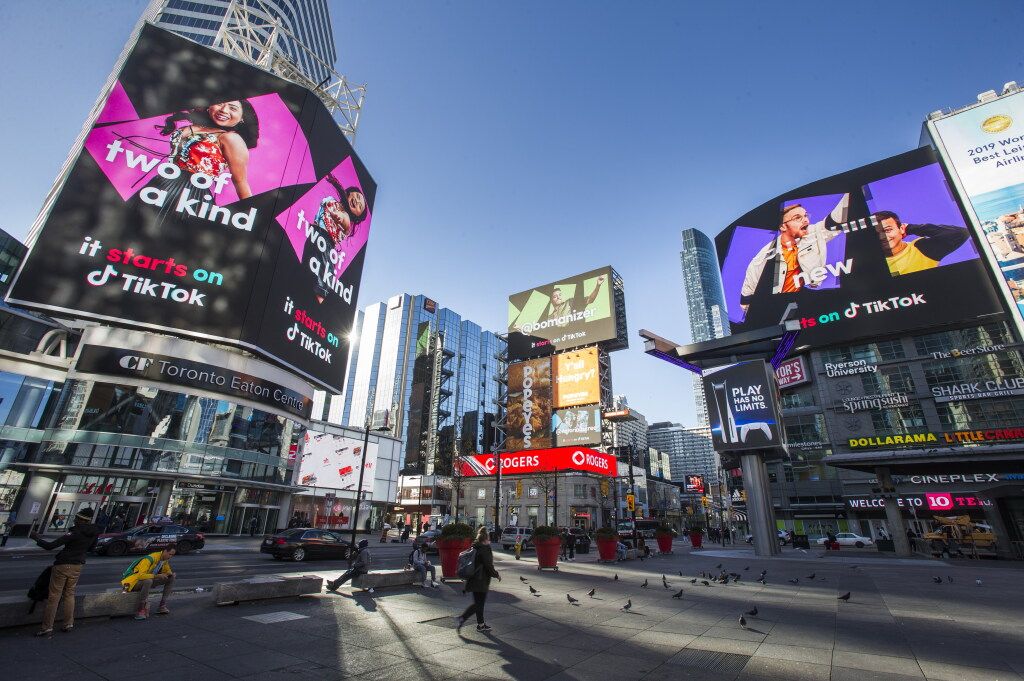Woman says police told her to remove car window's tint in possible 'driving while Black' case
A Montreal anti-racism group said it believes her race may have played a factor
Author of the article:Jacob Serebrin • Montreal Gazette
Published May 28, 2024 • Last updated 1 day ago • 3 minute read
Every Tuesday morning, Charlene Hunte leaves her home in a Montreal suburb around 6:30 a.m. to head to the Union United Church, next to Lionel-Groulx métro station, where she runs a weekly food bank.
But on the morning of April 30, Hunte says she was stopped by police as she looked for parking in the nearby Little Burgundy neighbourhood — a stop she says lasted 45 minutes as officers told her to scrape tint off her car windows, or they would have the vehicle towed.
Hunte said the stop left her feeling intimidated, and a Montreal anti-racism group said it believes Hunte’s race may have played a factor in the stop and the way she was treated.
“I was told I have to do it right there and then, and the intimidation was his power that he had over me, saying: ‘You’ve got to do this now, I’m going to tow the car, I’m going to give you a ticket’ — this is the authority he had over me,” she said.
Hunte, 62, said she dropped some things off at the church, which feeds between 80 and 100 people every week, and then planned to park her car and head back to set things up.
That’s when she says she was stopped by a police officer who told her he believed her tint was too dark.
“He said, ‘I couldn’t tell if you were a man or a woman,'” Hunte told reporters Tuesday at the church, after preparing bags of food for those in need.
Soon, she said, two more police vehicles arrived, including a supervisor. She said the supervisor brought a device to check the darkness of her window tint, which was 30 per cent darker than legally allowed.
Throughout the stop, Hunte said, she asked multiple times if the officer could give her a citation that would allow her to fix the issue within 24 hours, but was repeatedly told she had to remove the tint on the spot.
At first, she said, the officer told her to use a quarter to scrape the tint, but she didn’t have one, so she walked over to the police supervisor and asked him if he had 25 cents.
“He looked at me and he says, ‘Why do you need 25 cents?’ I said, ‘Because he’s telling me I have to scrape my tint off right now, but this is ridiculous.’ He says, ‘Well, anything the officer says, you have to comply.'”
An officer then gave her a knife to scrape the window, but it wasn’t easy, she said, and the officers helped her. Once the tint was removed from the driver’s side window, she said, the supervisor told her she could go and that the rest could be removed the next day.
Hunte said she wonders about what would have happened if a Black man had been at the wheel of the vehicle that morning instead of a woman. She added that after the stop, she worried about how things could have gone if someone had seen her with the knife and misinterpreted the situation.
Fo Niemi, the executive director of the Center for Research-Action on Race Relations, said the stop and the demands that Hunte allegedly faced were “unusual and a little bit draconian.”
He said the incident appears to be an example of “driving while Black,” when police stop drivers because of their race. “It sounds like it; it looks like it,” Niemi told reporters.
Niemi said his organization plans to help Hunte file a complaint with the police ethics commissioner.
Montreal police said they generally don’t comment on specific interventions because they don’t want to influence any legal, disciplinary or police ethics processes, but that people who feel wronged can complain to oversight bodies or Montreal police.
“We do not tolerate any disrespect, misconduct, harassment or criminal act by a member of our staff,” spokeswoman Anik de Repentigny wrote in an email, adding that any victim or witness of those kinds of actions are invited to notify the police service, which will take their reports seriously.

 torontosun.com
torontosun.com
A Montreal anti-racism group said it believes her race may have played a factor
Author of the article:Jacob Serebrin • Montreal Gazette
Published May 28, 2024 • Last updated 1 day ago • 3 minute read
Every Tuesday morning, Charlene Hunte leaves her home in a Montreal suburb around 6:30 a.m. to head to the Union United Church, next to Lionel-Groulx métro station, where she runs a weekly food bank.
But on the morning of April 30, Hunte says she was stopped by police as she looked for parking in the nearby Little Burgundy neighbourhood — a stop she says lasted 45 minutes as officers told her to scrape tint off her car windows, or they would have the vehicle towed.
Hunte said the stop left her feeling intimidated, and a Montreal anti-racism group said it believes Hunte’s race may have played a factor in the stop and the way she was treated.
“I was told I have to do it right there and then, and the intimidation was his power that he had over me, saying: ‘You’ve got to do this now, I’m going to tow the car, I’m going to give you a ticket’ — this is the authority he had over me,” she said.
Hunte, 62, said she dropped some things off at the church, which feeds between 80 and 100 people every week, and then planned to park her car and head back to set things up.
That’s when she says she was stopped by a police officer who told her he believed her tint was too dark.
“He said, ‘I couldn’t tell if you were a man or a woman,'” Hunte told reporters Tuesday at the church, after preparing bags of food for those in need.
Soon, she said, two more police vehicles arrived, including a supervisor. She said the supervisor brought a device to check the darkness of her window tint, which was 30 per cent darker than legally allowed.
Throughout the stop, Hunte said, she asked multiple times if the officer could give her a citation that would allow her to fix the issue within 24 hours, but was repeatedly told she had to remove the tint on the spot.
At first, she said, the officer told her to use a quarter to scrape the tint, but she didn’t have one, so she walked over to the police supervisor and asked him if he had 25 cents.
“He looked at me and he says, ‘Why do you need 25 cents?’ I said, ‘Because he’s telling me I have to scrape my tint off right now, but this is ridiculous.’ He says, ‘Well, anything the officer says, you have to comply.'”
An officer then gave her a knife to scrape the window, but it wasn’t easy, she said, and the officers helped her. Once the tint was removed from the driver’s side window, she said, the supervisor told her she could go and that the rest could be removed the next day.
Hunte said she wonders about what would have happened if a Black man had been at the wheel of the vehicle that morning instead of a woman. She added that after the stop, she worried about how things could have gone if someone had seen her with the knife and misinterpreted the situation.
Fo Niemi, the executive director of the Center for Research-Action on Race Relations, said the stop and the demands that Hunte allegedly faced were “unusual and a little bit draconian.”
He said the incident appears to be an example of “driving while Black,” when police stop drivers because of their race. “It sounds like it; it looks like it,” Niemi told reporters.
Niemi said his organization plans to help Hunte file a complaint with the police ethics commissioner.
Montreal police said they generally don’t comment on specific interventions because they don’t want to influence any legal, disciplinary or police ethics processes, but that people who feel wronged can complain to oversight bodies or Montreal police.
“We do not tolerate any disrespect, misconduct, harassment or criminal act by a member of our staff,” spokeswoman Anik de Repentigny wrote in an email, adding that any victim or witness of those kinds of actions are invited to notify the police service, which will take their reports seriously.

Woman says police told her to remove car window's tint in possible 'driving while Black' case
Center for Research-Action on Race Relations executive director Fo Niemi said the incident appears to be an example of "driving while Black."









